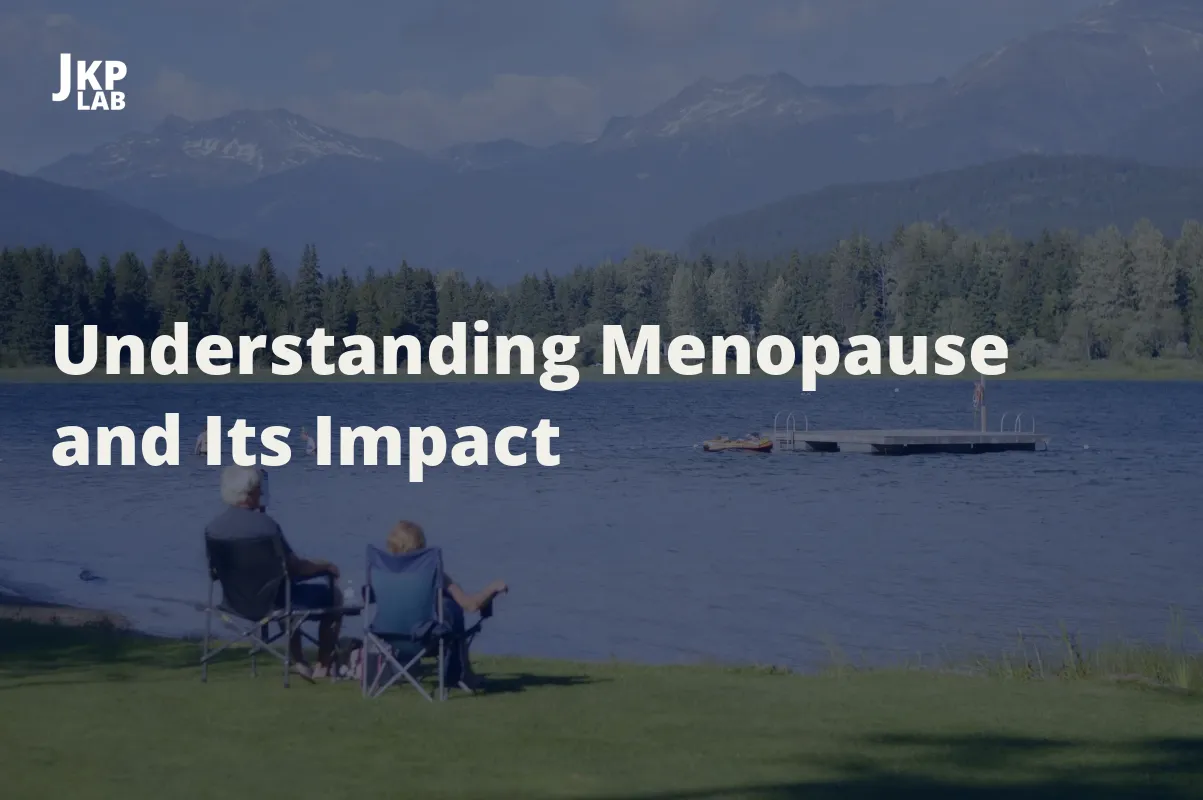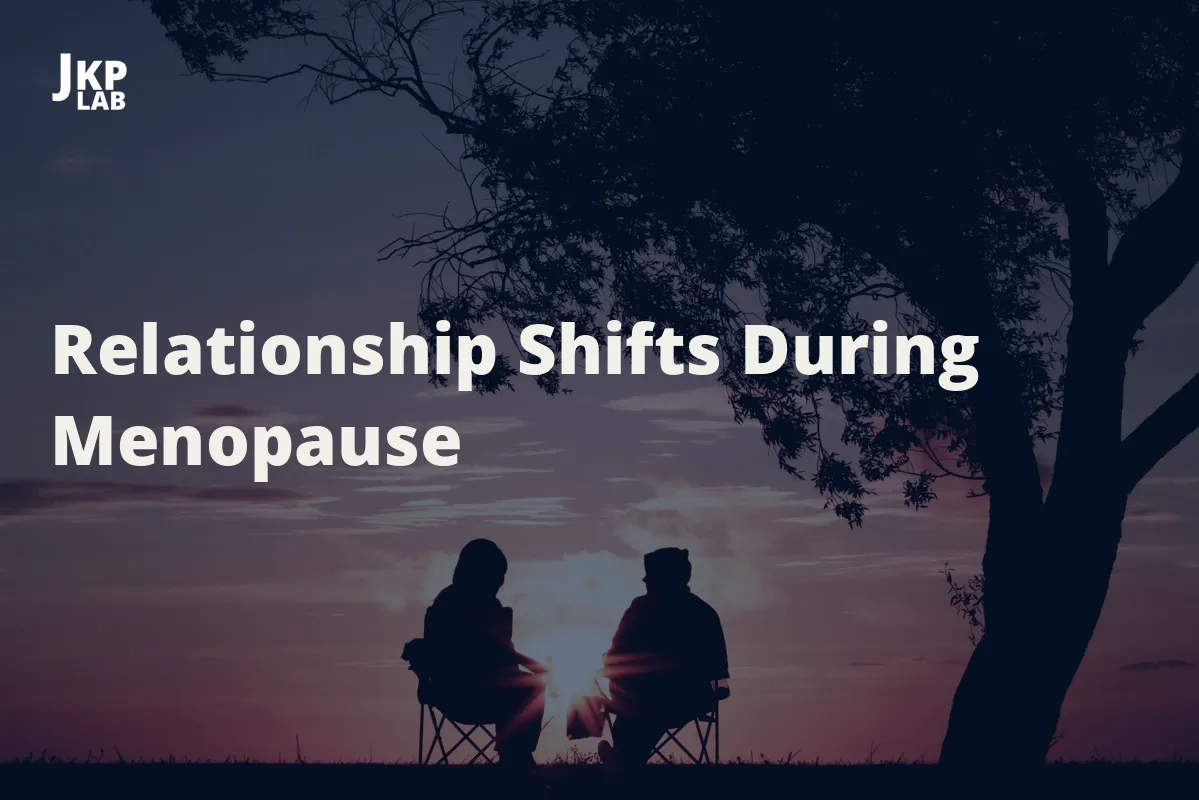
Understanding Menopause and Its Impact
Menopause is a natural phase in a woman’s life, marking the end of her reproductive years. It usually occurs between the ages of 45 and 55, though the age can vary among individuals. During this transition, the ovaries produce fewer reproductive hormones, leading to changes in menstrual patterns and eventually, the cessation of menstruation.
Physical Changes
The decline in hormone production can lead to various physical symptoms. These might include hot flashes, night sweats, and vaginal dryness. These symptoms, while often discussed and addressed, are just a fraction of the challenges women might experience.
Emotional and Mental Effects
Menopause can also have emotional and mental effects. Mood swings, irritability, and even depression are not uncommon. Many women report feeling less confident or struggling with self-image issues, partly due to the physical changes they are undergoing.
Impact on Relationships
One area that’s significantly affected during menopause is relationships. The emotional, physical, and mental changes can strain both romantic and platonic relationships. Intimacy can suffer, leading to feelings of disconnection or frustration for both parties involved.
For a deeper dive into the intricacies of menopause, from its early stages to post-menopausal life, consider exploring this comprehensive guide: All You Need to Know About Menopause.
Why Knowledge is Crucial
Understanding menopause and its various impacts can greatly help partners support one another. By being informed and empathetic, couples can navigate this phase with increased grace and patience, ensuring that their bond remains strong and resilient throughout the journey.

Relationship Shifts During Menopause
During menopause, the dynamics of relationships often undergo noticeable changes. This transformative period can both challenge and strengthen partnerships, depending on how they navigate it.
Emotional Distance
One of the common shifts seen in relationships during menopause is emotional distancing. As a woman goes through hormonal changes, her emotions can become unpredictable. She might experience mood swings, heightened sensitivity, or bouts of irritability. These emotional fluctuations can create misunderstandings or tensions in relationships.
Changes in Physical Intimacy
Physical intimacy, a cornerstone of many romantic relationships, can also be affected. Reduced hormone levels might lead to decreased libido or discomfort during intercourse due to vaginal dryness. This shift can make couples feel distanced, as physical closeness often translates to emotional bonding.
Communication: The Key
Open communication plays a pivotal role in navigating these changes. Partners should be encouraged to discuss their feelings, concerns, and needs. By understanding and acknowledging each other’s experiences and challenges, couples can work together to find solutions and keep their connection strong.
Reinventing Intimacy
While the nature of intimacy might change during menopause, it doesn’t mean it disappears. Couples can explore new ways to connect, whether it’s through non-sexual physical touch, spending quality time together, or finding shared hobbies. Embracing these changes can lead to discovering deeper, more meaningful ways of bonding.

Common Intimate Challenges Faced
Menopause isn’t just about physical changes; it significantly influences intimate aspects of a relationship. Here’s a breakdown of some of the most common intimate challenges couples face during this transitional period.
Decline in Libido
A decreased interest in sexual activity, often referred to as a decline in libido, is among the primary challenges. Hormonal fluctuations, particularly a reduction in estrogen levels, contribute to this reduced interest in intimacy.
Vaginal Dryness and Discomfort
The reduction of estrogen can also lead to vaginal dryness. This condition not only causes discomfort in everyday life but can make sexual activity painful or less enjoyable. It’s a concern that often remains unspoken, leading to further disconnect between partners.
Body Image and Self-esteem
Changes in the body, like weight gain or loss of skin elasticity, can affect how women perceive themselves. This altered self-image can make them feel less confident or attractive, which can, in turn, impact their desire for intimacy.
Emotional Disconnect
The emotional turbulence experienced during menopause can lead to misunderstandings and feelings of disconnect. A partner might misinterpret mood swings as disinterest or annoyance, causing rifts in the relationship.
Fatigue and Sleep Disturbances
Menopause can lead to sleep disturbances due to night sweats or hormonal changes. Constant fatigue from lack of sleep can diminish the desire for intimacy and reduce overall energy levels in daily life.
Addressing the Issues
It’s essential to recognize these challenges to address them effectively. Both partners should remain patient, understanding, and proactive in seeking solutions. Whether it’s through medical consultation, therapy, or lifestyle changes, these hurdles can be overcome, allowing couples to maintain a loving and intimate bond.

Boosting Intimacy and Reigniting Passion
In the midst of menopause, maintaining intimacy might seem challenging, but with the right approach, couples can find their way back to a passionate and fulfilling relationship.
Focus on Emotional Bonding
Physical intimacy is just one form of connection. Emotional bonding, such as sharing feelings, discussing dreams, or simply spending quality time together, can provide a foundation for a deeper connection.
Explore Non-Sexual Touch
Holding hands, hugging, or cuddling can offer comfort and closeness without the pressure of sexual intimacy. Such gestures can help partners feel loved and cherished, bridging the gap created by reduced sexual activity.
Date Nights and Adventures
Rekindling the spark often involves going back to the basics. Regular date nights or spontaneous adventures can bring back the excitement and novelty that might be missing. Whether it’s revisiting a cherished location or trying out a new hobby, shared experiences can reignite passion.
Professional Guidance
Therapists or relationship counselors specialize in helping couples navigate intimacy challenges. They can provide strategies, exercises, and insights to help reignite the spark.
Natural Enhancements
For some, natural supplements like Spanish Fly Pro can be beneficial. These products aim to boost libido and improve sexual experiences, serving as an aid to those looking to enhance their intimate moments. Always consult with a medical professional before trying any supplement.

Natural Solutions for Enhanced Arousal
In a world filled with synthetic treatments, many seek natural alternatives to address the challenges faced during menopause, especially when it comes to enhancing arousal.
The Power of Herbal Remedies
For centuries, cultures around the globe have turned to herbal remedies for various ailments. Herbs like ginseng, maca, and fenugreek have histories of being used to increase libido and alleviate menopausal symptoms.
Dietary and Lifestyle Changes
The food one consumes can play a significant role in sexual health. Foods rich in phytoestrogens, like flaxseeds and soy products, can help balance hormones. Additionally, regular exercise can improve blood flow, energy levels, and overall mood, indirectly boosting one’s intimate life.
Meditation and Mindfulness
Stress is a known libido killer. Meditation and mindfulness practices can help reduce stress and anxiety, paving the way for increased intimacy. By being present in the moment, couples can enhance their connection and shared experiences.
Safety First
While natural solutions can be effective, it’s essential to approach them with caution. Not every remedy suits everyone, and interactions with other medications or conditions can occur. Always consult a healthcare provider before trying a new remedy or making drastic lifestyle changes.

Spanish Fly Pro: A New Hope
In the quest for natural solutions to enhance arousal, Spanish Fly Pro has emerged as a popular choice among many individuals. Here’s a closer look at this product and its potential benefits during menopause.
What is Spanish Fly Pro?
Spanish Fly Pro is a dietary supplement derived from natural ingredients. It is designed to increase sexual arousal, boost libido, and enhance the overall sexual experience for both men and women.
How Does it Work?
The formula of Spanish Fly Pro focuses on promoting better blood flow, which is crucial for arousal and sensitivity. Additionally, its ingredients may help balance hormones, thereby addressing some of the root causes of decreased libido during menopause.
Benefits for Menopausal Women
Many menopausal women face challenges related to intimacy due to hormonal imbalances and other related symptoms. Spanish Fly Pro offers:
- Enhanced Libido: The supplement can help reignite the passion that might wane during menopause.
- Increased Arousal: Women might find it easier to get in the mood, leading to more satisfying intimate moments.
- Improved Sensitivity: The heightened sensitivity can make physical intimacy more enjoyable and fulfilling.
Precautions and Considerations
While Spanish Fly Pro offers several benefits, it’s vital to ensure it’s the right fit. Individuals should always consult with a healthcare professional before incorporating any supplement into their routine to ensure safety and compatibility with their unique health situation.

Strengthening Bonds and Embracing Change
Menopause, while a natural transition, brings with it a series of challenges that can test the bonds of any relationship. However, with understanding, patience, and the right tools at one’s disposal, it can also be an opportunity for growth and renewed intimacy.
Rebuilding Intimacy from the Ground Up
Every challenge faced during menopause can become an opportunity to rebuild and fortify the foundations of a relationship. Open conversations, shared experiences, and mutual understanding can pave the way for an even stronger bond.
The Role of External Aids
Products like Spanish Fly Pro and other natural remedies serve as tools that can help couples navigate the intimate challenges of menopause. When used responsibly and in conjunction with emotional and physical efforts, they can be beneficial in reigniting the spark.
Embracing Change Together
Change is inevitable in every phase of life, and menopause is no exception. Couples who choose to face it together, armed with knowledge, understanding, and the willingness to adapt, find themselves in a better position to embrace the new chapter in their lives.
In Conclusion
Menopause might introduce changes and challenges, but with the right approach, it doesn’t have to define or diminish the strength of a relationship. By exploring solutions, being supportive, and continually seeking ways to connect, couples can ensure their bond remains resilient and passionate throughout this journey and beyond.